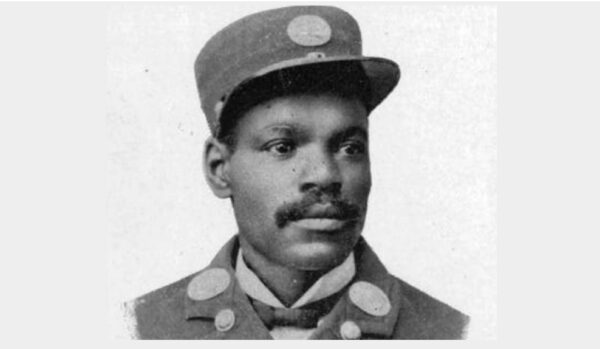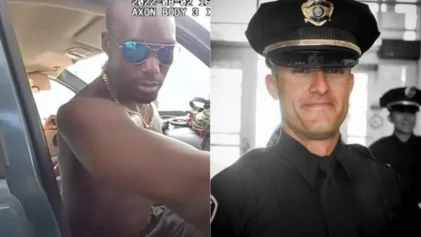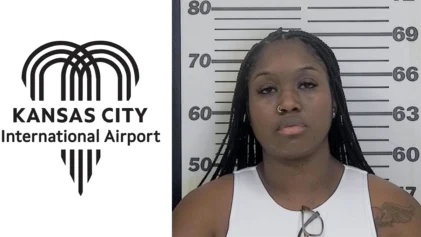The Minnesota Disability Justice Network, members of the community and Minneapolis City Council member Andrew Johnson have worked together to honor a local African-American hero by naming a street after him. The current fire chief of the municipality said the man’s “perseverance and service” opened the door for others.

On Thursday, March 17, officials in the Twin City hosted a ceremony to change Dight Avenue to Cheatham Avenue, renaming the street that runs parallel to Hiawatha Avenue and between 34th and 43rd Streets in the Howe neighborhood, after city’s the first Black fire captain in Minneapolis.
The street that bears the surname of Fire Captain John Cheatham is located two blocks away from the station where he fashioned a history-making career in the early years of the 20th century.
Mayor Jacob Frey was joined by some of the chief’s relatives at the renaming ceremony. Corey Webster, Becki Hardman and Alcindor Holie, whose grandmother was Cheatham’s niece, carried a picture of their distant uncle.
City Council member Andrew Johnson, who was instrumental in the approval and logistics of the renaming project, celebrated Cheatham by saying, “We owe a tremendous debt of gratitude to Captain John Cheatham and his fellow Black firefighters who so courageously stepped up to serve and protect the residents of our community, despite the unending racism and oppression they faced.”
He continued, “Seeing John Cheatham’s name raised high serves not just as a reminder of his legacy, but also, his example, which is one for all of us to follow.”
The community started pushing for the street to be renamed since last summer, but not necessarily with Cheatham in mind as the replacement.
In May 2021, Noah McCourt of the Disability Justice network started a petition to Frey and the Minneapolis City Council, saying the street was “named after Charles Fremont Dight, a professor at the University of Minnesota who dedicated his life to Eugenics and cleansing the human gene pool of human beings who were deemed ‘less than desirable.’ ”
Throughout his life, Dight founded the Minnesota Eugenics society, was elected to the Minneapolis City Council in 1914, and even wrote a letter to German politician Adolf Hitler commending the work of Third Reich aimed to “stamp out mental inferiority.”
The equity advocates said in the petition, that culminated with over 30,000 supporters, “This sort of legacy should not be recognized or lauded anywhere.”
Councilman Johnson agreed with the Disability Justice Network and called Dight a “a pretty bad person,” whose work “resulted in the forced sterilization of hundreds of Minnesotans.”
According to MPRNews, ceremony attendee Rev. Tracey Gibson, whose church sits on the newly named Cheatham Street, said, “This is recognizing and valuing the contributions of who we are as African American.”
Her congregation boasts historic roots also, as it holds claims to be the oldest African American church in Minnesota, being founded in 1863.
As a community stakeholder, Gibson said, “What Cheatham stood for, and what [Dight] stood for are on opposite ends of the spectrum.”
Born in 1855, Cheatham spent the beginning of his life oppressed in the institution of American slavery in the state of Missouri. After the Emancipation Proclamation, he and his family moved to Minnesota, making them one of the oldest families to live in the Midwest state. In 1899, he became a fire captain with Minneapolis of Fire Station 24, before retiring in 1911.
According to CBS Local, during his career, he worked in a “redlined neighborhood.”
Still, he did it with dignity, opening doors for others.
Minneapolis Fire Chief Bryan Tyner, the first Black person in his capacity, chimed in, “I have always believed that I stand on the shoulders of those pioneering Black firefighters who came before me. As the first Black fire captain in the City’s history, Captain John Cheatham certainly presents a broad set of shoulders,” he added.
“His perseverance and service made it possible for me and others to serve this City as Black firefighters and set the path for me to eventually serve the City as its fire chief. Continuing that tradition, continuing that progress is something I will strive to do.”
After Cheatham’s tenure as fire captain, it took the city 75 years to appoint another Black person to the position.


